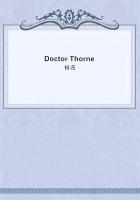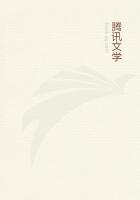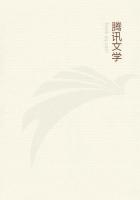On the other hand, if the noble first President of the Royal Society could revisit the upper air and once more gladden his eyes with a sight of the familiar mace, he would find himself in the midst of a material civilisation more different from that of his day, than that of the seventeenth was from that of the first century. And if Lord Brouncker's [38] native sagacity had not deserted his ghost, he would need no long reflection to discover that all these great ships, these railways, these telegraphs, these factories, these printing-presses, without which the whole fabric of modern English society would collapse into a mass of stagnant and starving pauperism,--that all these pillars of our State are but the ripples and the bubbles upon the surface of that great spiritual stream, the springs of which only, he and his fellows were privileged to see; and seeing, to recognise as that which it behoved them above all things to keep pure and undefiled.
It may not be too great a flight of imagination to conceive our noble revenant [39] not forgetful of the great troubles of his own day, and anxious to know how often London had been burned down since his time and how often the plague had carried off its thousands. He would have to learn that, although London contains tenfold the inflammable matter that it did in 1666; though, not content with filling our rooms with woodwork and light draperies, we must needs lead inflammable and explosive gases into every corner of our streets and houses, we never allow even a street to burn down. And if he asked how this had come about, we should have to explain that the improvement of natural knowledge has furnished us with dozens of machines for throwing water upon fires, any one of which would have furnished the ingenious Mr. Hooke, the first "curator and experimenter" of the Royal Society, with ample materials for discourse before half a dozen meetings of that body; and that, to say truth, except for the progress of natural knowledge, we should not have been able to make even the tools by which these machines are constructed. And, further, it would be necessary to add, that although severe fires sometimes occur and inflict great damage, the loss is very generally compensated by societies, the operations of which have been rendered possible only by the progress of natural knowledge in the direction of mathematics, and the accumulation of wealth in virtue of other natural knowledge.
But the plague? My Lord Brouncker's observation would not, I fear, lead him to think that Englishmen of the nineteenth century are purer in life, or more fervent in religious faith, than the generation which could produce a Boyle,[40] an Evelyn,[41] and a Milton. He might find the mud of society at the bottom, instead of at the top, but I fear that the sum total would be as deserving of swift judgment as at the time of the Restoration.[42] And it would be our duty to explain once more, and this time not without shame, that we have no reason to believe that it is the improvement of our faith, nor that of our morals, which keeps the plague from our city; but, again, that it is the improvement of our natural knowledge.
We have learned that pestilences will only take up their abode among those who have prepared unswept and ungarnished residences for them. Their cities must have narrow, unwatered streets, foul with accumulated garbage. Their houses must be ill-drained, ill-lighted, ill-ventilated. Their subjects must be ill-washed, ill-fed, ill-clothed. The London of 1665 was such a city. The cities of the East, where plague has an enduring dwelling, are such cities. We, in later times, have learned somewhat of Nature, and partly obey her. Because of this partial improvement of our natural knowledge and of that fractional obedience, we have no plague; because that knowledge is still very imperfect and that obedience yet incomplete, typhoid is our companion and cholera our visitor. But it is not presumptuous to express the belief that, when our knowledge is more complete and our obedience the expression of our knowledge, London will count her centuries of ******* from typhoid and cholera, as she now gratefully reckons her two hundred years of ignorance of that plague which swooped upon her thrice in the first half of the seventeenth century.
Surely, there is nothing in these explanations which is not fully borne out by the facts? Surely, the principles involved in them are now admitted among the fixed beliefs of all thinking men?
Surely, it is true that our countrymen are less subject to fire, famine, pestilence, and all the evils which result from a want of command over and due anticipation of the course of Nature, than were the countrymen of Milton; and health, wealth, and well-being are more abundant with us than with them? But no less certainly is the difference due to the improvement of our knowledge of Nature, and the extent to which that improved knowledge has been incorporated with the household words of men, and has supplied the springs of their daily actions.
Granting for a moment, then, the truth of that which the depreciators of natural knowledge are so fond of urging, that its improvement can only add to the resources of our material civilisation; admitting it to be possible that the founders of the Royal Society themselves looked for not other reward than this, Icannot confess that I was guilty of exaggeration when I hinted, that to him who had the gift of distinguishing between prominent events and important events, the origin of a combined effort on the part of mankind to improve natural knowledge might have loomed larger than the Plague and have outshone the glare of the Fire; as a something fraught with a wealth of beneficence to mankind, in comparison with which the damage done by those ghastly evils would shrink into insignificance.


